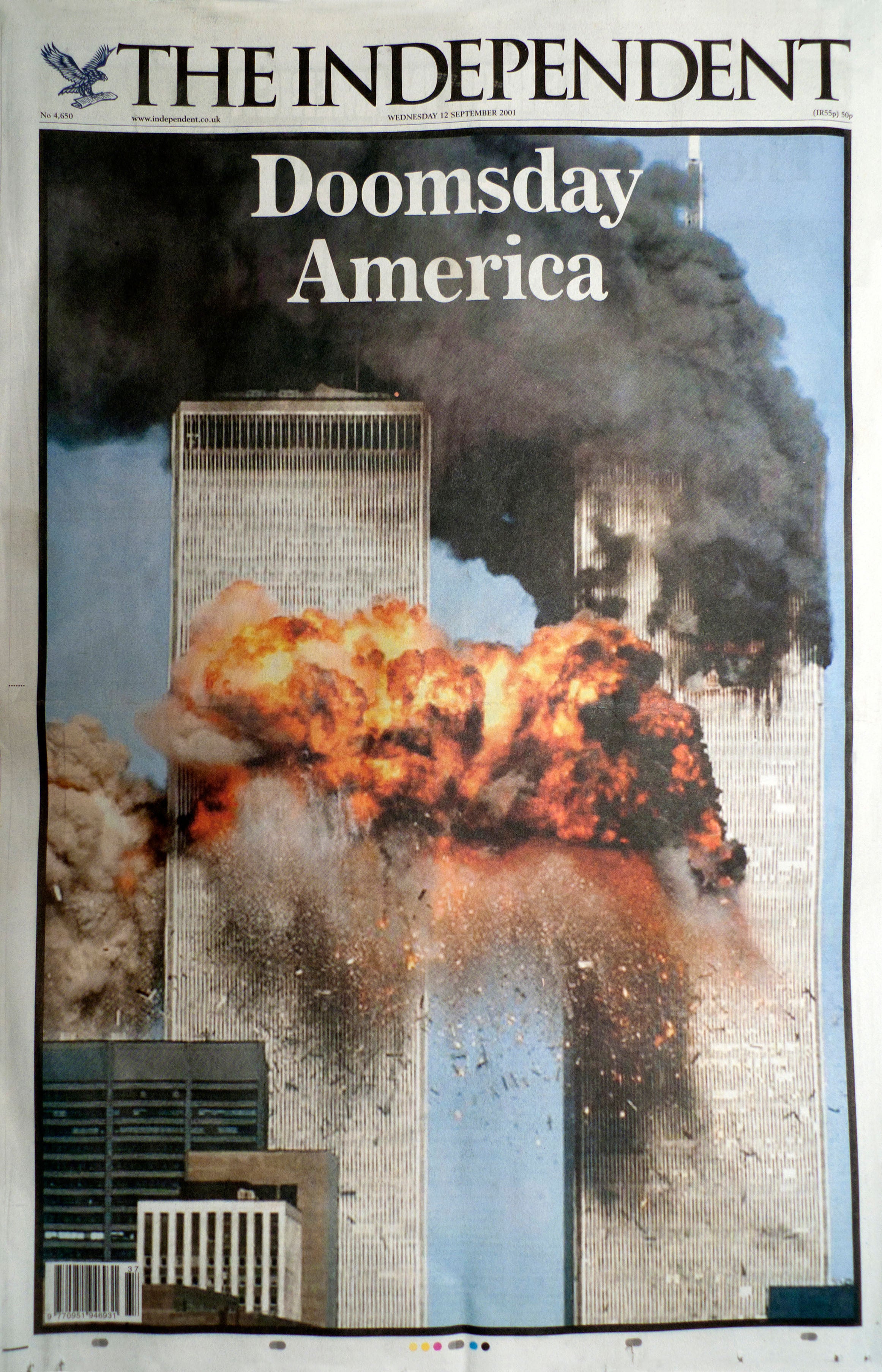‘In the shadow of death’: A look back at how The Independent covered 9/11’s chilling aftermath
‘If I ever need to imagine what a nuclear hell must look like, I have seen it today,’ David Usborne wrote of Ground Zero in September 2001
Your support helps us to tell the story
From reproductive rights to climate change to Big Tech, The Independent is on the ground when the story is developing. Whether it's investigating the financials of Elon Musk's pro-Trump PAC or producing our latest documentary, 'The A Word', which shines a light on the American women fighting for reproductive rights, we know how important it is to parse out the facts from the messaging.
At such a critical moment in US history, we need reporters on the ground. Your donation allows us to keep sending journalists to speak to both sides of the story.
The Independent is trusted by Americans across the entire political spectrum. And unlike many other quality news outlets, we choose not to lock Americans out of our reporting and analysis with paywalls. We believe quality journalism should be available to everyone, paid for by those who can afford it.
Your support makes all the difference.“How thin is the line between normality and panic?” Rupert Cornwell asked in the pages of The Independent on 12 September, 2001.
The paper’s headlines reflected that panic: “Terror in America”, “All-American Nightmare”, “Phone calls from planes described final, fateful moments”, “Priests give last rites on the street as survivors queue to give blood”, “Bush says bombings were ‘act of war’”, “‘The Pentagon’s been hit. The kids, are the kids OK?’”
Just 24 hours earlier, hijacked planes had crashed into the World Trade Center and the Pentagon, killing nearly 3,000 people. On its front page, The Independent summed up the carnage with two words: “Doomsday America”.
Inside the paper, Mr Cornwell described what it was like to be in Washington, DC on the day of the attacks:
“Offices closed and panicked workers rushed out onto the streets. Everyone was talking into mobile phones. Snatches of conversations at every stride told the same story: ‘Bombs ... they’re going off everywhere’; ‘the Pentagon’s hit’; ‘nothing’s working ... they’ve shut the Metro’; ‘the kids, are the kids OK?’. But then the mobile networks simply broke down, and lines formed at antiquated old payphones.”
In an age before smartphones provided up-to-the-minute news updates, Mr Cornwell’s words perfectly captured the panic that set in:
“No one knew which rumours were true – a car bomb at the State Department; an explosion on the Mall, the great ceremonial expanse through the heart of monumental Washington; another at the Capitol. In those terrible moments everything seemed possible.”
Before dawn the next day, another Independent staffer, then-US editor David Usborne, took a dazed walk to Manhattan’s Ground Zero and retold what he saw:
“If I ever need to imagine what a nuclear hell must look like, I have seen it today. Hollywood could never conjure this. Thick smoke continues to fill the area, fed by fires on what was the No 7 building in the World Trade complex, a 40-storey block that collapsed later on Tuesday afternoon. Occasionally, the smoke clears to reveal the remains of the towers. Segments of what used to be the steel sheathing of the towers are standing, pointing upwards towards the sky like snapped-off teeth. Otherwise, nothing is recognisable.”

As he walked through the ashes of the Twin Towers, a seemingly harmless but haunting detail caught his eye:
“Anyone who has lived through this will have images in their head that they will never forget. Some are grisly and will rob us of sleep. Others are more quiet and chilling. I won’t forget, for instance, a fruit and vegetable stall on the pavement in Church Street. It will still be there now, as you read this. Aubergines and raspberries and apples, all arranged nicely to entice passing office workers. None of them have any colour, now, because they are covered in the grey snow of ash like everything else.”
In Washington, Mr Cornwell noted a similar eerie stillness:
“Where they could move, drivers ran red lights; every man for himself. But in the centre nothing moved. Ambulances and police cars, sirens blazing, were stuck fast. The traffic lights flickered from red to green – the people stood, watched and prayed for normality to return.”






Join our commenting forum
Join thought-provoking conversations, follow other Independent readers and see their replies
Comments